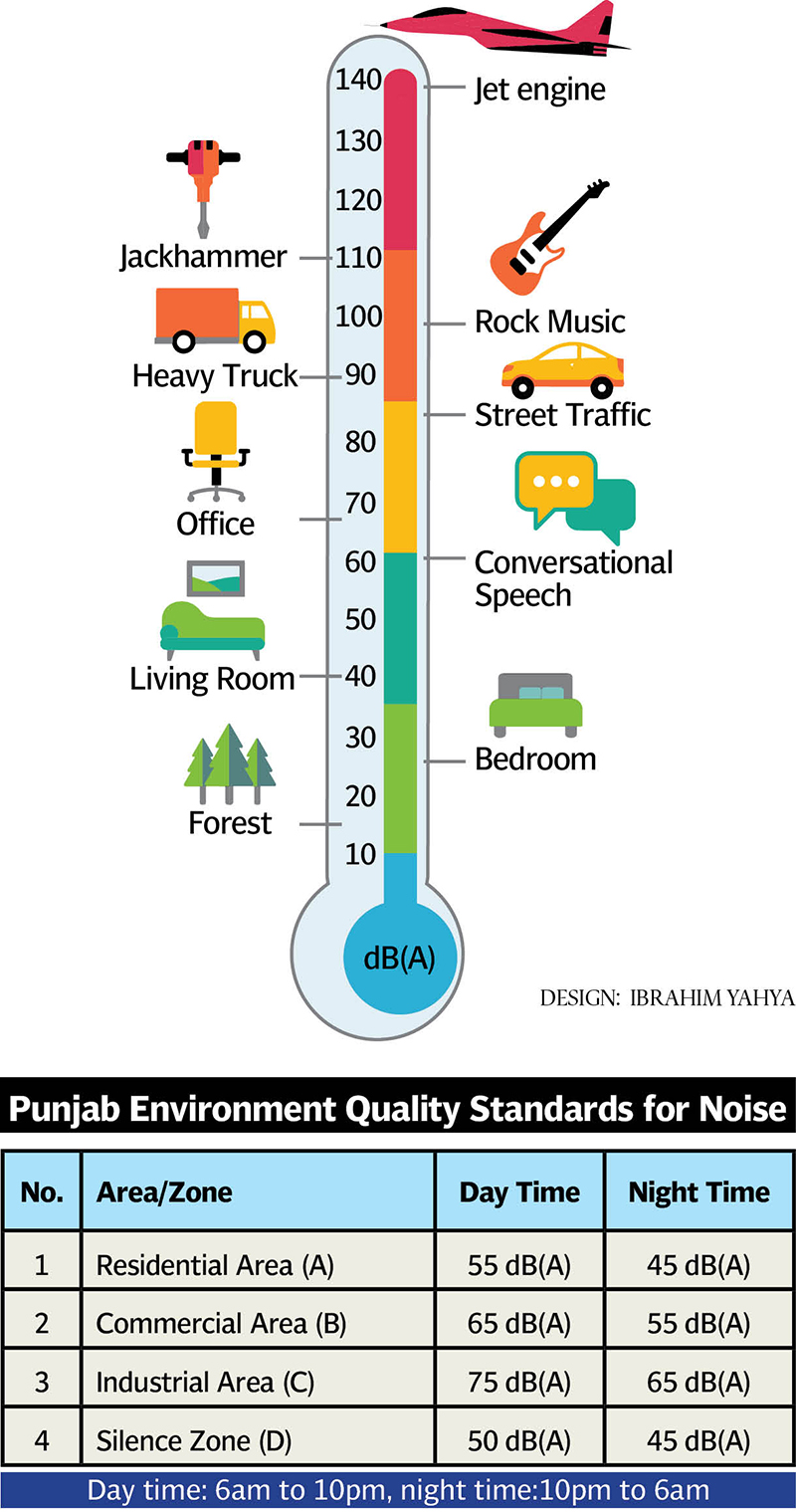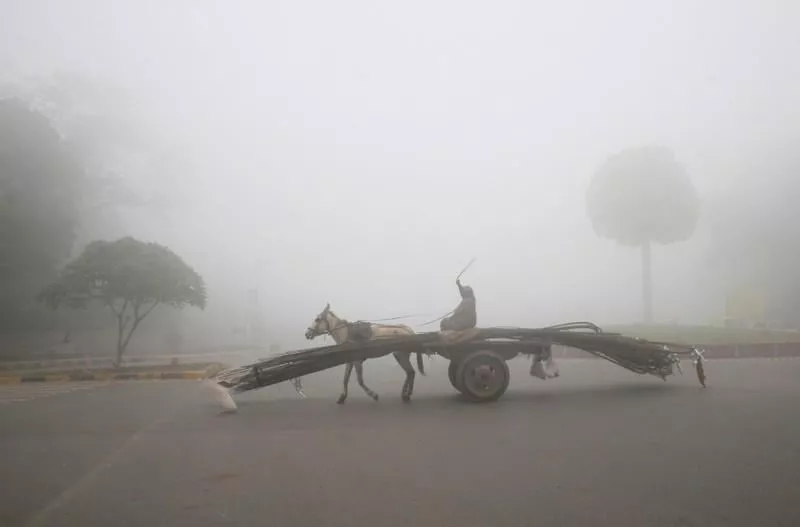Excessive noise pollution in Lahore rings alarm
Doctors warn of rise in hearing impairment, depression
LAHORE:The noise pollution level has crossed the World Health Organisation’s (WHO) acceptable threshold of 60-65 dB in various areas of Lahore as well as across the province, as the Punjab Environment Protection Department (EPD), city district government, traffic police and other departments concerned failed to alleviate the levels of the pollutant from the atmosphere.
Residents of various areas in Lahore, particularly dense residential and commercial areas have suffered owing to the escalating noise pollution levels.
In comparison to other pollutants, noise pollution has received lesser importance as a health risk around the country. In July 2013, the EPD through the ‘Punjab Environment Quality Standards for Noise’ notified a limit for sound pressure.

It stated that the noise level in residential areas should not exceed 45 dB at night and 55 dB during day time, while the commercial areas were allowed daytime noise of up to 65 dB and nighttime noise of up to 55 dB(A) Leq, that denotes the time weighted average of the level of sound in decibels on scale ‘A’, which is relatable to human hearing.
Speaking to The Express Tribune, a senior Lahore EPD official confirmed that several areas in the city have noise levels more than the allowed limit.
“The Walled City, Shah Alami Market, Lohari, Sanda Road, Garhi Shahu, Badami Bagh, Kareem Park, Shahdara, Chauburji, Township, Jail Road and Mall Road are among areas suffering the most due to noise pollution,” he added.
In past the government had taken an initiative to reduce sound pressure by declaring Jail Road as a silence zone (50 dB sound pressure limit) but the campaign failed as no one was willing to abide by the law, he lamented.
“It is a tragedy that EPD neither has comprehensive data, research nor strategy to reduce noise pollution.”
Dr Javed Iqbal, a senior ENT Specialist at the Services Hospital, was wary that noise pollution was turning citizens into patients.
The doctor asserted that ‘most’ patients suffering from hearing issues, stress and depression hail from areas where noise pollution is more compared to other areas.
“Continuous noise can damage hearing power of both adults and children,” he explained, adding that many patients complaining of hearing loss come to the hospital daily.
He expressed remorse that the government was not trying to curb noise pollution.
Seconding the claim of the ENT specialist, Institute of Public Health Dean Dr Zarafshan Zafar said that noise pollution has several dangerous impacts on human health, including loss of hearing and poor sleep.
She said people who reside in noisy areas have bad listening powers and sleep pattern, which eventually leads to poor working capacity.
“Patients and students suffer the most because of the chronic sound pressures.”
A citizen, Qamaruz Zaman, said his nervous system is severely affected if he spends one hour on the road, “I lose my focus and it is even hard for me to go to sleep right after that.”
“The government should do something about gridlocks around the city and plant more trees to reduce pollution levels,” he suggested.
On the other hand, EPD Public Relation Officer Sajid Bashir claimed that the department was working hard to keep the environment healthy and was undertaking research too.
The officer confirmed that EPD has access to sound monitoring technology through a readily available online application ‘Noise operator’.
“Noise measurement does not require expensive equipment, the actual problem lies with controlling excessive sound pressure around us,” he detailed.
“In this connection, the public must also act responsibly along with the authorities to end it,” Sajid underscored.
He highlighted that there was a need to build awareness about the issues among the people, factory and business owners so that the noise pollution issue is quickly resolved.
“Public representatives and government departments, including the traffic police and transport department should come forward with plausible strategies to help us get rid of the issue,” he concluded.
Published in The Express Tribune, September 21st, 2020.


COMMENTS
Comments are moderated and generally will be posted if they are on-topic and not abusive.
For more information, please see our Comments FAQ